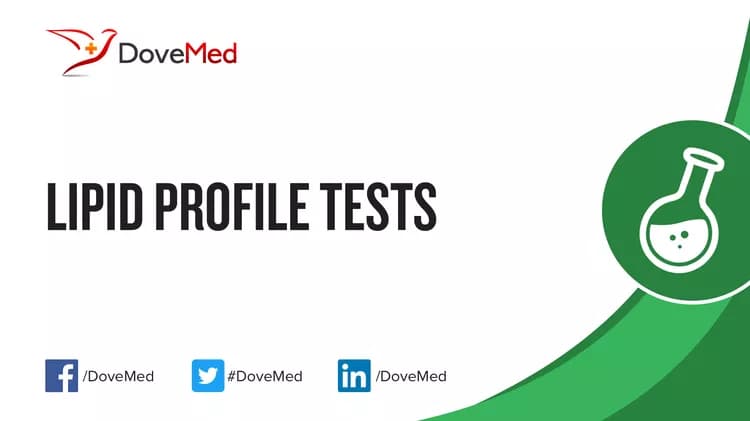What are the other Names for this Test? (Equivalent Terms)
- Coronary Risk Panel Tests
- Hyperlipidemia - Testing
- Lipoprotein/Cholesterol Analysis
What is Lipid Profile Test? (Background Information)
Lipids:
- Lipids are a broad range of water insoluble, naturally occurring compounds such as fats, steroids, phospholipids, fat-soluble vitamins (A, D, E, and K), triglycerides, waxes, etc.
- Lipids help in various physiological functions of the human body, store energy, provide body insulation and constitute an important cell component
Lipid Profile Tests:
- Lipid Profile Tests are a group of tests that measures the amounts (content) of different types of lipids, such as cholesterol, in blood
- This routine medical test for healthy adults helps evaluate one’s risk and susceptibility towards coronary heart diseases or heart attacks and stroke (due to blockage of blood vessels)
- The test results along with various high risk factors for heart diseases are considered together for recommendation of further treatment approaches
Usually LDL-cholesterol (low density), HDL-cholesterol (high density), total cholesterol and triglycerides blood values are determined. Sometimes, other cholesterol types are quantified, to constitute what is called, an “Extended Lipid Panel Test”.
What are the Clinical Indications for performing the Lipid Profile Tests?
The Lipid Profile Tests may form part of a routine health check process (along with other tests). Individuals in the following category may also be ordered, to take this test:
- A fasting lipid profile is usually advised for healthy adults (at regular intervals of 3-5 years), who have no known risk factors for heart disease
- Individuals, who have previously tested with high cholesterol levels, should have Lipid Profile Tests, more regularly
- Adults having high risk factors leading to coronary heart problems, like smoking, high blood pressure, leading a sedentary life, age over 45 years (over 55 years for females), having a previous family history of such diseases, diabetes, and those with low HDL-cholesterol, high LDL-cholesterol levels, etc.
- Those individuals on a dietary and weight-loss program with an exercise regimen and lipid lowering medications are evaluated more frequently using this test, to assess effectiveness of the program
- Children, teens, and young adults, who are at an increased risk to develop heart ailments in their adult life - like those with a previous family medical history of heart problems, diabetes, high blood pressure, obesity, etc.
How is the Specimen Collected for Lipid Profile Test?
Sample required: Blood
Process: Insertion of needle into a vein (arm) or, using the finger stick (finger prick) method.
Preparation required: For fasting lipid profile, 12 hours of complete fasting prior to the test. Individuals may only consume water during this period.
What is the Significance of the Lipid Profile Test Result?
The Lipid Profile Test results are weighed together with other risk factors, age and sex of the individual, before the course of treatment is determined. The ATP III Guidelines of the National Cholesterol Education Program (US Govt.) provides an invaluable reference range for each of the lipid categories, and is provided below:
LDL cholesterol (mg/dL): The primary target of therapy:
| <100 | Optimal |
| 100-129 | Near optimal/above optimal |
| 130-159 | Borderline high |
| 160-189 | High |
| >190 | Very high |
A high LDL value is generally used as a key risk factor and a modification of the individual’s lifestyle (including exercise and diet) is the first step towards treatment. A low-fat diet, moderate physical activities and exercises, should enable in lowering one’s LDL levels. If these measures do not work, then medication therapy may be given.
The target values for other components of lipid profile are considered mainly with other risk influencing elements and are mentioned below:
Total cholesterol (mg/dL):
| <200 | Desirable |
| 200-239 | Borderline high |
| >240 | High |
HDL cholesterol (mg/dL):
| <40 | Low |
| >60 | High |
Serum triglycerides (mg/dL):
| <150 | Normal |
| 150-199 | Borderline high |
| 200-499 | High |
| >500 | Very high |
The laboratory test results are NOT to be interpreted as results of a "stand-alone" test. The test results have to be interpreted after correlating with suitable clinical findings and additional supplemental tests/information. Your healthcare providers will explain the meaning of your tests results, based on the overall clinical scenario.
Additional and Relevant Useful Information:
- High triglycerides value can adversely affect the LDL measurement, during Lipid Profile Test. Further screening for LDL alone, like a direct LDL test, is required in such cases.
Certain medications that you may be currently taking may influence the outcome of the test. Hence, it is important to inform your healthcare provider, the complete list of medications (including any herbal supplements) you are currently taking. This will help the healthcare provider interpret your test results more accurately and avoid unnecessary chances of a misdiagnosis.
Related Articles
Test Your Knowledge
Asked by users
Related Centers
Related Specialties
Related Physicians
Related Procedures
Related Resources
Join DoveHubs
and connect with fellow professionals


0 Comments
Please log in to post a comment.